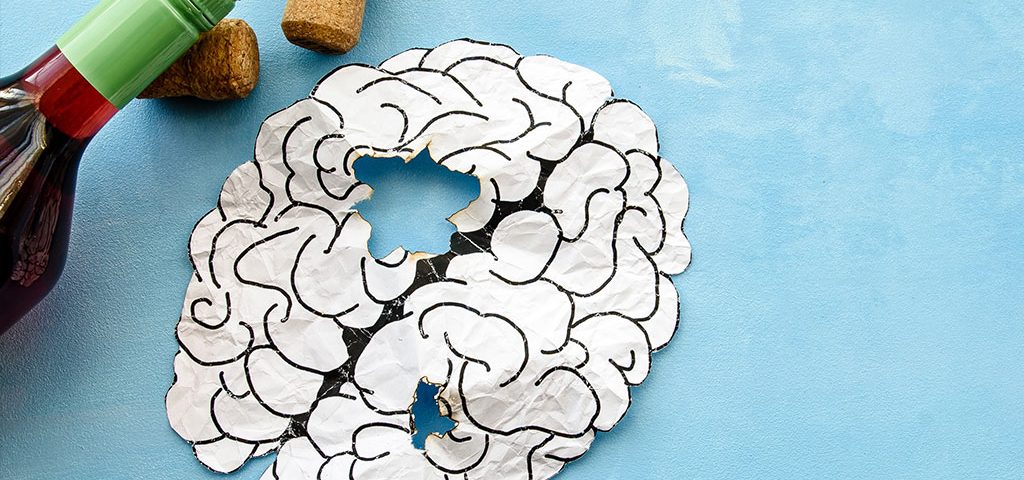Many people indulge in alcohol occasionally. Unfortunately for some, that occasional glass of wine can quickly turn into a whole bottle in one sitting. The clearest sign that someone has developed a drinking problem is when they’re unable to carry out their responsibilities or enjoy anything without alcohol. These individuals may also constantly worry about when they’ll have their next drink and where they’ll get it from. Addiction isn’t the only thing to fear from excessive drinking. Below is the truth about the long-term effects of alcohol.
Questions about our Facilities or Programs?
Our admissions coordinators are available 24/7 to answer any questions you may have as you consider whether treatment at Banyan is right for you or your loved one.
What Happens When You Drink Alcohol?
Alcohol is absorbed fairly quickly through the stomach lining, where it then travels into your bloodstream, quickly spreading throughout your body. How alcohol affects the brain depends on how quickly it’s absorbed. Absorption then depends on a variety of factors, like whether the person drank on an empty stomach. This is when absorption is quickest, especially with drinks that have an alcohol concentration of twenty to thirty percent.
Alcohol affects various parts of your body. One of the effects alcohol has on the brain is the activation of the reward system. Because alcohol is a sedative, it triggers the release of neurotransmitters called dopamine and serotonin, producing feelings of euphoria, pleasure, and relaxation. These symptoms are what usually attract drinkers the most. The release of these hormones is also why people who are drunk display disinhibited behaviors or begin to say and do things they wouldn’t normally do.
Alcohol also prevents the brain from communicating with the rest of the body and within itself. Messages sent and received by the brain are blocked when too much alcohol is consumed, causing numerous problems.
The negative effects of alcohol on the brain may include:
- Euphoria
- Depression
- Disorientation
- Impaired motor coordination
- Loss of memory
- Confusion
- Slurred speech
- Blackouts
- Seizure
- Loss of consciousness
- Decreased heart rate
- Coma
The higher the person’s blood alcohol concentration (BAC), the worse their symptoms are. Without an alcohol detox or professional substance abuse treatment, alcohol addiction can cause health problems like permanent cognitive impairment and liver disease.
What Are the Long-Term Effects of Alcohol?
Drinking can have an extensive impact on the brain, ranging from simple slips in memory to permanent and debilitating conditions that require life-long care. Heavy, long-term drinking has also been associated with various forms of chronic diseases, including liver cirrhosis. Below is more on the long-term effects of alcohol on the brain and liver and how to recognize the signs of a problem.
Alcohol and Memory Loss
Alcohol and blackouts are a common duo, as alcohol can produce impairments in memory and cognition after only a few drinks. As the quantity of alcohol in a person increases, so does the degree of impairment. Heavy drinking, especially when done quickly and on an empty stomach, can result in a blackout or a period of time in which the user cannot recall any events.
Blackouts are much more common among social drinkers and binge drinkers, as these individuals are more likely to consume large amounts of alcohol in a short period. However, alcohol can affect long-term memory. This has a lot to do with alcohol’s effects on the cerebellum.
Heavy and long-term drinking can lead to a thiamine deficiency. Thiamine, or vitamin B1, is an essential nutrient required by all tissues, including the brain. It’s found in foods like meat and poultry, whole grain cereals, nuts, dried beans, peas, and soybeans.
Up to 80% of alcoholics, however, have a thiamine deficiency, and some of these individuals will go on to develop disorders such as Wernicke–Korsakoff syndrome as a result.2 Otherwise known as alcoholic wet brain, Wernicke–Korsakoff syndrome is made up of two different syndromes: a short-lived condition called Wernicke’s encephalopathy and a long-lasting condition called Korsakoff’s psychosis.
Wernicke’s encephalopathy is marked by symptoms like mental confusion, paralysis of the nerves that move the eyes, and trouble with muscle coordination. For instance, individuals with this condition may be too confused to find their way out of a room or even struggle to walk. Approximately 80% to 90% of people with Wernicke’s encephalopathy will develop Korsakoff’s psychosis.
Korsakoff’s psychosis is a chronic, severe, and debilitating syndrome marked by learning and memory problems. People with this condition are forgetful, become easily frustrated, and struggle with walking and coordination. While these individuals may experience retrograde amnesia (forgetting old information), their difficulty storing new memories (anterograde amnesia) is most prominent.2
Alcohol Liver Disease
Alcoholic liver disease is also a common problem among heavy and chronic drinkers. The liver is chiefly responsible for breaking down alcohol into harmless byproducts and removing them from the body. Long-term and heavy alcohol abuse can cause liver cirrhosis, which is when the liver builds up scar tissue.
This scarring of the liver can eventually prevent the organ from working properly. Cirrhosis is also referred to as end-stage liver disease because of its association with liver failure. What’s more, liver cirrhosis from drinking can also harm the brain. In fact, alcohol liver cirrhosis can lead to a fatal brain disorder called hepatic encephalopathy.
Hepatic encephalopathy can affect a person’s sleep patterns, mood, and personality, and can contribute to mental health disorders like anxiety and depression. This condition can also cause a shortened attention span and problems with coordination, such as flapping or shaking of the hands. In more serious cases, patients with hepatic encephalopathy may slip into a coma, which could be fatal.
Understanding the short and long-term effects of alcohol can lead to further awareness, preventative action, and early intervention. Additionally, catching alcoholism early on can prevent these long-term problems from occurring.
Getting into treatment is easy with our free insurance verification
"*" indicates required fields
Help for Alcohol Abuse
At Banyan Treatment Centers Texas, we understand how quickly an alcohol addiction can develop. Moderate drinking can quickly become a problem and negatively impact your health and relationships with others.
If you or a loved one has developed a drinking problem, don’t wait to get help. Our rehab in Texas offers alcohol addiction treatment as well as various therapy programs which, combined, address the physical and psychiatric components of recovery.
For more information about our Texas drug and alcohol treatment, call Banyan today at 888-280-4763, or you can provide us with your contact information, and we’ll reach out as soon as possible.
Sources :
- NCBI – Alcohol in the body
- NIAA – Alcohol’s Damaging Effects On the Brain
Related Reading:









